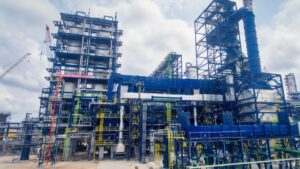
Oil theft: Nigeria’s oil output falls 5.5% to 1.249 mb/d in Q1, 2023 — OPEC
Nigeria’s oil production fell 5.5% month-on-month from 1.184 million barrels per day in May to 1.249 million barrels per day in June 2023.
Also, on year-on-year, YoY, the nation’s oil output dropped by 17.6 per cent to 1.249 mb/d in June 2023, from 1.515 mb/d in the corresponding period of 2022.
The Organisation of Petroleum Exporting Countries, OPEC, in its latest July 2023 Monthly Oil Market Report, disclosed that this was based on data obtained from official sources.
The report did not consider Nigeria’s condensate output, currently hovering between 300,000 and 400,000 bpd, meaning that when this is considered, the nation’s total output would be much higher.
However, in its latest July 2023 report, the Nigerian Upstream Petroleum Regulatory Commission, NUPRC, has said that Nigeria’s daily oil production lagged behind the OPEC quota in June as it rose marginally by 4.9 per cent to 1.241 million barrels compared to 1.183 million barrels recorded in May 2023.
NUPRC in its oil production figures indicated that in total crude oil production and condensate oil amounted to 1.472 million barrels per day last month, an increase of 3.15 per cent when compared to May production of 1.427 million barrels per day.



